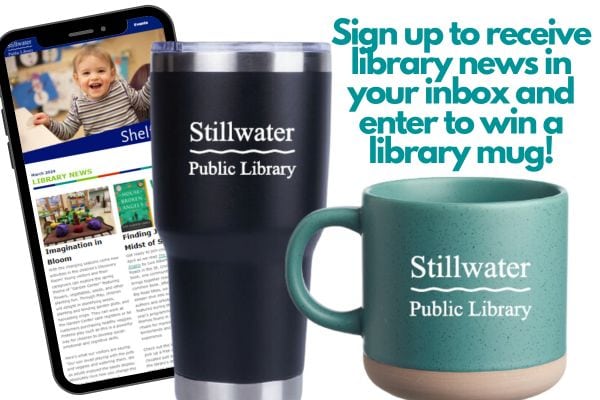Early Literacy
At Stillwater Public Library, we integrate the five practices and six skills as outlined by Every Child Ready to Read. Research supports that practicing these essential concepts helps prepare a child to read when they reach kindergarten. The great news is that you’re probably already doing these at home.
Practices
Every time you talk, sing, read, write, and play with your child, you are building vital connections in their growing brain.
TALK
Talk with your child every day and let them join in. Ask questions that require an answer other than yes or no and then wait for them to answer. Children need more time to formulate responses.
SING
Singing slows language down and allows children time to hear the different parts of words. They also experience rhythm. When children sing, they’re learning new vocabulary words, too.
READ
Surround your home with books and read out loud to your child. It’s the best way to prepare their brains for learning about language. Picture books contain words that children don’t often hear in everyday conversation.
WRITE
Reading and writing are learned at the same time! Activities that encourage hand, wrist, and finger movement build fine motor development to help with strength and pencil grip needed to write.
PLAY
Children learn about how the world works at playtime. They use their imaginations and language to problem solve and act out real situations while thinking symbolically.
Skills
In addition to the five early literacy practices, six basic skills help prepare your child for kindergarten by building a strong foundation for learning.
- Print Motivation: Being interested in and enjoying books
- Print Awareness: Noticing print everywhere, knowing how to handle a book, and knowing how to follow the written word on the page
- Letter Knowledge: Knowing that letters are different from each other, knowing letter names and sounds, and recognizing letters everywhere
- Vocabulary: Knowing all kinds of words
- Phonological Awareness: Hearing and playing with the smaller sounds of words
- Narrative: Describing things and events, telling stories, knowing the order of events, and making predictions
More Resources
The Fred Rogers Center for Early Literacy and Children’s Media
Minnesota Department of Education
Reading Rockets, Zero to Three: Early learning resources
StoryBlocks: Songs & rhymes that build readers (videos are in different languages including French, Italian, ASL, Spanish, Arabic, and Amharic)
Zero to Three: National Center for Infants, Toddlers, and Families
The library’s youth services staff have created a variety of videos and activities to help your youngest learners prepare to read. Check out the library’s YouTube channel or Facebook for more early literacy videos and other archived programming.
- Friday Fun Day – Signs of Summer Scavenger Hunt (video), Signs of Summer Scavenger Hunt (printable), FF Summer Book List
- Friday Fun Day – Little Mouse (video), Little Mouse Colored Houses (printable)
- Friday Fun Day – Dinosaurs! (video), Activity Packet (printable)
Early Literacy Tips & News
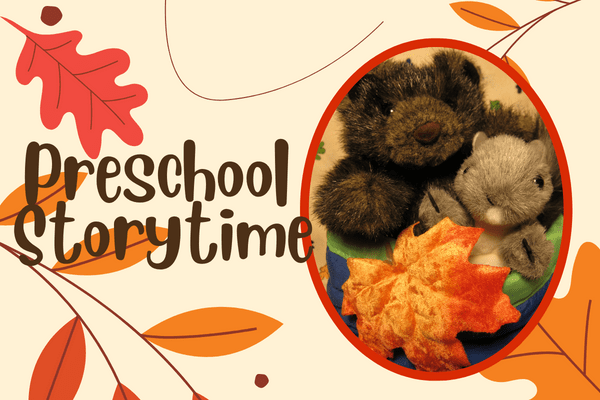
Early Learning and Library Storytimes
How does a storytime led by a children's librarian bolster early learning and development standards? Children interact with librarians who become familiar adults outside their families, aiding in their social and emotional development. Movement songs and repetitive...
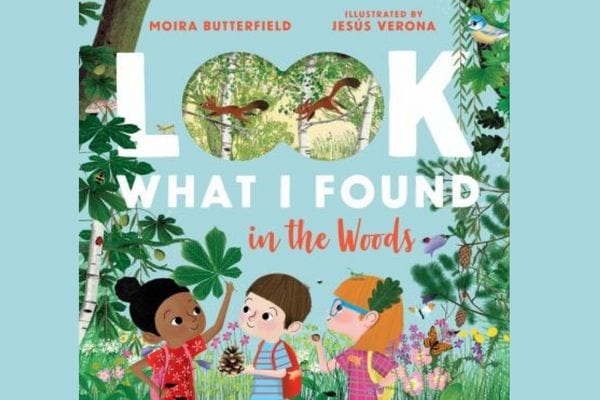
Explore nature this summer!
Early childhood educators, researchers, youth librarians, parents, and caregivers can all attest to the benefits of being immersed in nature. Young children's brains develop rapidly and the more experiences they have that involve all their senses, the better. Time...
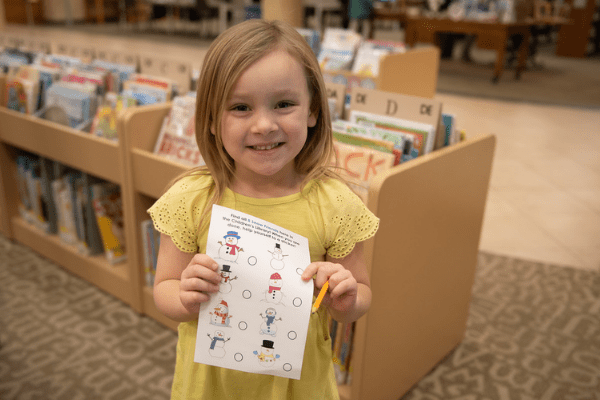
Why is there a scavenger hunt in the children’s library?
It isn't any secret that people of all ages enjoy scavenger hunts. At the library, we use this fun activity in the children's space because it offers: an activity to do whenever the library is open a chance to practice problem-solving and observational skills a social...
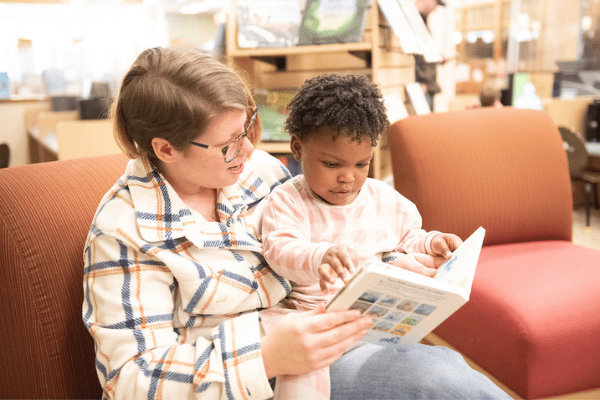
Follow the Words
When children learn that words on a page have a message, their curiosity is piqued and their brains work to decode the meaning. This is an essential early literacy skill - print awareness. Write down the words to their favorite nursery rhyme and sing it with your...
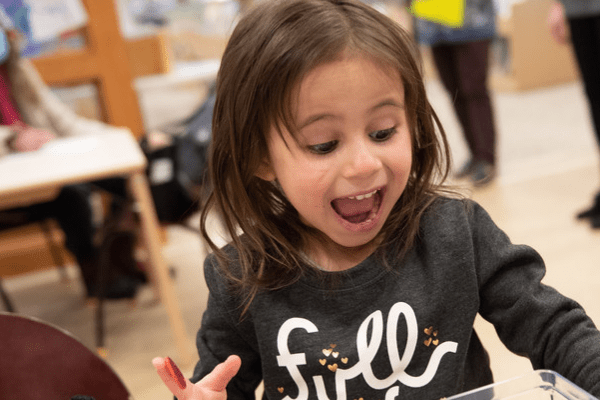
Pick a Song, Any Song
Use this idea the next time you need to fill your day with music! Together with your child, choose your favorite songs to sing. Write the names of the songs on index cards or squares of paper and place them in a box. When your child needs an activity to do, draw out...
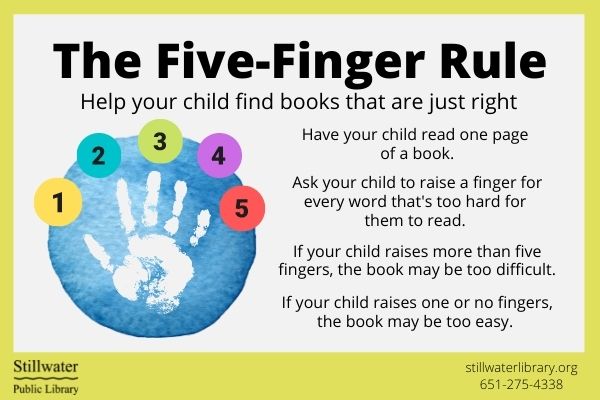
Five-Finger Rule
Help your child find books that are just right with the Five-Finger Rule. Have your child read one page of a book. Ask your child to raise a finger for every word that's too hard for them to read. If your child raises more than five fingers, the book may be too...

